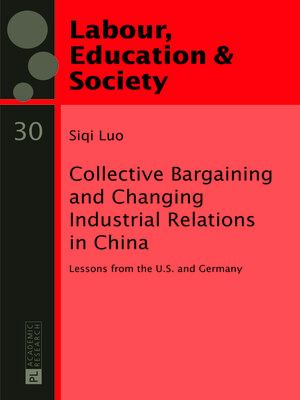Collective Bargaining and Changing Industrial Relations in China.
ebook ∣ Lessons from the U.S. and Germany · Arbeit, Bildung Und Gesellschaft / Labour, Education and Society
By György Széll

Sign up to save your library
With an OverDrive account, you can save your favorite libraries for at-a-glance information about availability. Find out more about OverDrive accounts.
Find this title in Libby, the library reading app by OverDrive.



Search for a digital library with this title
Title found at these libraries:
| Library Name | Distance |
|---|---|
| Loading... |
This study focuses on the status and prospects of collective bargaining in China based on lessons learned from the post-war United States and Germany. The author regards collective bargaining as a type of core wage regulation that emerged from production regimes at the factory level and from economic and labor policies of the state. This analysis compares the production regimes and the state-labor-capital relations in China today with the U.S. and German models in order to identify the missing links as well as potential driving forces in the current system of collective contract in China. Finally, the author proposes an ideal model of collective bargaining in China, one that offers solutions to a more just and sustainable trajectory of industrial development and that tailors to the power status of the major actors in industrial relations.







